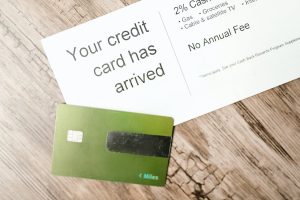Debt collectors must show they have the legal right to take a debt from you. The process of requesting debt validation has many advantages. It can result in having the collection account completely deleted from your credit history.
Learn everything you must learn regarding debt validation, so that you can start today.
What exactly is Debt Validation?
Debt validation is the process of having the debt collector demonstrate that you are liable for the amount they claim to owe. If a debt collector tries to contact you regarding an outstanding debt and you are unable to resolve it, the Fair Debt Collection Practices Act (FDCPA) permits you to request validation of your debt.
Debt collectors should stop any collection efforts after they receive an official letter of debt validation (also known as the debt verification letter). It includes reporting and checking until they provide an appropriate debt validation.
Although there is no time frame set for them to verify they are not able to continue collecting until they are able to provide the required details. Sometimes, collection agencies will cease collection and then return the account to the original creditor, rather than confirm it. This is legal. However, the inability to contact you provides the debt collector with plenty of incentive to get rid of the notice of debt validation.
Proof That You Owe the Debt
A debt collector might not have the right documents to collect debt legally. Or maybe you’ve already settled the debt but the collection agency is still harassing you. Perhaps they’ve accused you of owing the debt that you don’t have to pay. It’s likely that the amount you owe is not correct.
Validating a debt is a way to be a solution to all of these issues to ensure that you don’t fall victim to collections that aren’t correct.

Why is debt validation important?
Understanding the function of a debt collection agency might seem difficult however it’s not. Let’s look at it in an actual scenario to comprehend the importance of collecting debt.
Say that Sarah took cash from John. Then, she receives an email from Laura asking for one thousand dollars as payment of her obligation to John.
How do Sarah be certain that she is owed Laura one thousand dollars instead of John? In addition how will Sarah be certain that her obligation to John will be paid off when she makes a payment to Laura?
Reasons to Ask for Debt Validation
Requesting debt validation can help confirm these things. You’ll be able to determine that the creditor who originally issued the request legally allows the debt collector to take money from you.
You can also confirm that all past payments have been made and verify whether fees are correct imposed to the debt.
Then, you have to ensure that you actually have the debt they claim you owe.
If you fail to verify all of these points you could be liable for paying an amount you don’t really have to pay or even paying someone who shouldn’t be stealing your money. It’s a option for any consumer to safeguard themselves from the countless scammers and untrustworthy collectors of debt.
Your Legal Rights
In this regard that’s why the FDCPA gives you the right as a consumer to demand confirmation of a debt and also to verify the validity of a debt when a collector wants to collect cash from you.
If they cannot verify the debt the credit bureau won’t be able to put it in an unfavorable mark on your credit report. By requesting the validation of debt, you’re requesting that the collector prove that they’ve got the legal authority to collect the debt.
The document also confirms that you have agreed to settle the debt, and that the amount owed is correct. You may file a complaint against any debt collector that fails to comply with these steps. You can make a complaint to the attorney general of your state or the Federal Trade Commission (FTC) or to the Consumer Financial Protection Bureau (CFPB) for breaking the law.

3 Steps to Validating Your Debt
Step 1: Request Debt Validation
Within 30 days from the your initial contact, send an acknowledgement of debt to the agency that collects your debt by certified mail. You can inquire about which creditor was the original one and request proof that the debt belongs to you like the original loan contract. Check out our sample debt validation letters.
If you mail the demands by certified mail, with a return receipt requested you will receive an acknowledgement (“green card”) that the debt collector has received your demands. It is also recommended to keep an original copy of the letter of debt validation on the file.
This can aid in bolstering your defense in case that you are required to pursue a lawsuit against the collector. The debt collector must stop collection efforts after they receive this debt validation notice, unless they provide the information you request.
Step 2: Follow Up if Needed
If you do not hear from them, write them a second letter stating that, in accordance with the Fair Debt Collection Practices Act (FDCPA), you will not be able to pay the debt. Include an original copy of the debt validation letter along with an original receipt.
As of now as per FDCPA guidelines the agency that collects debt should stop contacting you and not seek to sue you.
Step 3: Send a Notice of Failure to Validate
If the collector of debt has not been able to confirm the debt and sent an acknowledgement of the debt to an agency for consumer reporting They must then take the notice off.
If not, you must send an acknowledgement of the deficiency of validation for the debt to each of the consumer reporting agencies that has the debt. If the credit reporting agency is able to verify the debt, they must be removed from your credit report.
What to Do if the Debt Collector Validates the Debt
If the collector can send you proof that they have the legal right to collect the debt, and the debt is yours and if the amount is accurate the debt will be confirmed. They can try again to collect.
Find the statute of limitations for the state you live in to ensure that the debt isn’t expired. If it has the debt collector has a right to not pursue you to collect the debt. You can send them an expired SOL notice letter to make them stop collecting. If the debt is not expired, you need to take additional steps if you would like to contest it.
Paying the Debt or Negotiating Settlement
There are several methods to deal with debt that is verified. First you can make the payment in full, if that’s an option that is feasible for you. You may also agree to a settlement, in which you agree to only pay part of the amount.
If the debt is reported in your credit report, you may also request the ‘pay for delete’. This will allow the collection to be deleted from your credit report after you have paid what you are owed.
No matter what you do, don’t overlook the issue. Try to find an answer to bring your finances under control. Just ignoring the issue will not solve the problem.

What should you include in your debt validation letter?
Debt validation letters don’t need to be elaborate or complex however, they must contain the following essential points. First, don’t declare that you are the owner of the debt, or that you plan to pay it since it could trigger a new deadline for repayment.
Inform them that you asked for debt validation when you received the an original notice from the debt collector’s intent to collect. For instance, you might include the date of a letter or the time and date of an incoming phone call.
Other Tips to Deal with Debt Collectors
In dealing with collection companies, it’s important to keep in mind that many states require that they have a license. Therefore, you must determine whether your state requires licensing. If so, find out if the collection company is licensed.
Consumers should be aware that the requirement to verify debts only occurs when the debt was assigned. The original creditors do not have to prove the debt if they offered the service or lent the money.
Note: You do NOT have the legal right to validation under the FDCPA when dealing with an original creditor.
They can decide to confirm the debt in case you request it however, they are not obliged to do so. There are alternatives to disputing the debt in these circumstances.
Filing a Dispute with the Original Creditor
Also, you are entitled to the option under the Fair Credit Reporting Act (FCRA) to dispute the debt directly with the original creditor. You may contest the accuracy of your credit report you believe is inaccurate.
After they’ve received your letter of dispute with the debtor they must review the information reported. They should also inform the credit agencies that your account is in dispute.
Filing a Dispute with the Credit Bureaus
The FCRA also permits you to contest a collection account to the credit bureau in case you believe the account to be suspect or not verifiable.
Other Legal Rights
You could also have other rights under the Fair Credit Billing Act ( FCBA) and the laws of your state.
In addition, if you request the validation of your debt from a lender who is putting a negative information on your credit report, they must to record the account as “disputed by consumer” (or similar language).
They cannot create the listing for a new one or verify an existing list with the credit bureau until they provide you with a confirmation. It is therefore advisable to be aware of the laws in order to be a strong advocate at the moment.

FAQs
How does debt validation work?
Debt validation is the process that allows you as a consumer can contest the claims of a debt collector regarding the debt you have. The procedure begins when you send the collector a formal letter asking them to verify the debt. The letter should contain your full name as well as your address as well as the total amount.
If the debt collector is notified of the request from you, they must supply evidence that you actually are obligated to pay the debt. This includes the creditor’s name, amount due and the date that the debt was paid. The debt collector should also be able to prove to prove they are legally entitled authority to collect the debt.
If the collector of your debt is not able to provide this information, you are able to contest the debt. That means you don’t be required to repay the debt, unless the collector proves that you owe the debt.
If the debt is deemed valid then you need to decide what to do. You might be able to talk to the debt collector over the possibility of a payment plan or to pay the debt in full. If your debt is big or you aren’t able to pay the entire amount it is possible to look into alternatives to reducing debt.
What does it mean to validate your debt?
The process of validating debt involves proving that the debt is legitimate and validating the amount owed. It is essential to verify your debt since it assures you that you’re only paying what you owe, and the debt is legitimate.
How long does debt validation take?
Debt validation can take between 30 and 90 days. During this period the debt collector needs to prove that you owe them the debt for example, a copy the contract you originally signed or an agreement that you signed.
You will also receive a letter from the debt collection agency that outlines the total amount of debt and the creditor’s name and the right you have to contest the debt. The debt collector is obliged to cease all collection activities until the verification process is completed.
What’s the statute of limitations on debt collection?
The time limit for debt collection is different for each state, and ranges between three and 10 years. The clock generally starts to tick at the time of your last payment. It’s therefore important to remember the date you last paid the debt prior to it being placed into collections.
After the expiration of the statute of limitations the collectors and creditors can not sue you to collect the debt. However, they can contact you and attempt to recover the debt.




